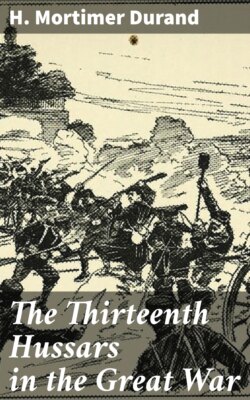Читать книгу The Thirteenth Hussars in the Great War - H. Mortimer Durand - Страница 9
На сайте Литреса книга снята с продажи.
ОглавлениеTHE DEPARTURE FROM BOMBAY. 19TH NOVEMBER 1914
It was a striking incident that the convoy was escorted from Bombay by the Dupleix, a French man-of-war. In the old days, when the French and English were fighting out their long struggle for the mastery of India, the English had no more dangerous enemy than Dupleix, who tried to raise against them a confederacy of Indian powers, and as some believe taught them the use of Indian soldiery trained after the manner of Europe. Sea-power, which he did not understand, baffled all his efforts and decided the struggle in favour of England. Now, if the spirit of the great Frenchman had returned to the shores of India, he would have seen the same sea-power again triumphantly exerted, and would have watched his own countrymen, in a vessel which bore his name, joining with his old enemies to convey to the shores of France, for the help of France, thousands of Indian soldiery drilled and disciplined after his own fashion. If he could have gone with them he might have seen another and even more striking example of the irony of fate. He might have seen on the shores of the Channel the figure of another and greater Frenchman, looking down from his lofty column, not upon the ranks of his veterans gathered together for the invasion of England, but upon the tents of numberless British encampments full of Englishmen assembled on French soil to fight for France. A hundred years before, English sea-power had foiled his vast schemes of conquest. “Those far-distant, storm-beaten ships upon which the Grand Army never looked, stood between it and the dominion of the world.” And they had prevailed. Now English sea-power was fighting on the side of the Army of France, and the old enemies combined were to bring down in ruin another scheme of universal empire.
